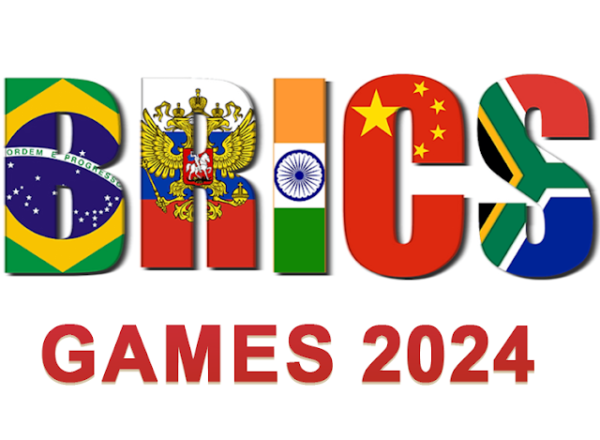The BRICS Games 2024 are scheduled to take place in Kazan, Russia, from June 20 to June 23, marking a significant event in the realm of international sports diplomacy. These games involve the original BRICS member states: Brazil, Russia, India, China, and South Africa, aiming to foster closer ties and cooperation among these major emerging economies.
The inaugural BRICS Games began with an under-17 football tournament in Goa, India, and subsequently evolved into a multi-sport extravaganza hosted annually by the rotating BRICS presidency. Guangzhou, China, hosted the first official multi-sport BRICS Games in 2017, setting the precedent for subsequent editions that highlight sportsmanship, cultural exchange, and diplomatic camaraderie among participating nations.
South Africa’s successful hosting of the BRICS Games in Durban last year underscored the event’s ability to attract enthusiastic participation from member countries. This year’s edition in Kazan promises to be even more dynamic, welcoming not only the original members but also new participants from Iran, Saudi Arabia, UAE, Egypt, Ethiopia, and Argentina. The growing interest from these nations reflects the expanding influence and appeal of the BRICS platform.
Sports featured at the BRICS Games include a diverse array such as volleyball, football, Chinese wushu, and taolu, among others. Each host country has the opportunity to add unique cultural elements and variations to the games, ensuring a rich tapestry of athletic competition and cultural exchange. The Kazan games are expected to introduce innovative sports combinations, potentially including biathlons with basketball and football, alongside showcasing traditional indigenous games that celebrate diverse cultural heritages.
Beyond the athletic competitions, the BRICS Games serve as a significant diplomatic tool in an era marked by global geopolitical tensions and unilateral actions. They promote people-to-people diplomacy, allowing athletes and officials from member states to forge lasting friendships and mutual understanding. Moreover, these games offer a platform for athletes from countries facing economic sanctions or political isolation, providing them with a fair and unbiased environment to showcase their talents.
Hosting the BRICS Games not only highlights a nation’s sporting prowess but also serves as a stage to showcase its cultural identity and heritage to a global audience. Government agencies collaborate extensively to promote tourism, arts, culture, and economic opportunities during the event, enhancing international visibility and fostering future bilateral and multilateral engagements.
Looking ahead, there is a growing consensus within BRICS to expand participation beyond its core membership to include other interested nations. With over 40 countries expressing interest in joining BRICS, the organization’s potential to influence global affairs continues to grow. This expansion aims to bolster BRICS’ collective voice on international issues, akin to the coordinated approach seen in groups like the G7, thereby enhancing its role as a strategic player in global diplomacy.
The BRICS Games, distinct from traditional international events like the Olympics organized under International Olympic Committee (IOC), serve as a counterpoint to the dominance of Western-led sporting platforms, particularly those influenced by the United States.
Furthermore, hosting the BRICS Games allows member nations to enhance their soft power and global visibility by showcasing their infrastructure, hospitality, and cultural heritage to a global audience. This exposure helps to strengthen bilateral and multilateral ties among BRICS countries, contributing to a more multipolar world order that challenges the dominance of Western institutions.
In conclusion, the BRICS Games 2024 in Kazan represent more than just a sporting event; it embodies a commitment to cooperation, cultural exchange, and mutual respect among nations striving to shape a multipolar world order. By leveraging sports as a diplomatic tool, BRICS reaffirms its relevance and influence on the global stage, paving the way for enhanced international cooperation and prosperity.
